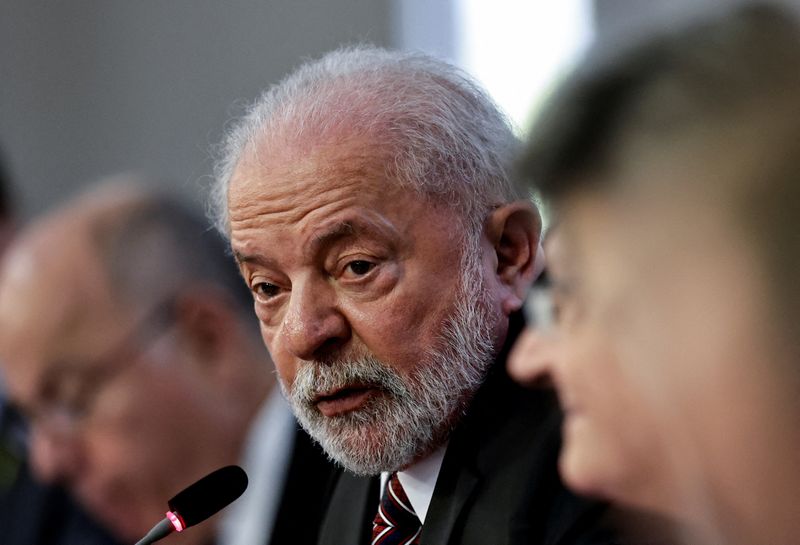By Lisandra Paraguassu and Anthony Boadle
BRASILIA (Reuters) - Divergent views on Venezuela surfaced during a South American leaders' summit on Tuesday hosted by Brazil's President Luiz Inacio Lula da Silva as part of his efforts to unite the region's development and give it a stronger voice internationally.
Lula urged South America's 12 countries to overcome ideological differences that have divided the region and join efforts toward more economic, cultural and social integration.
But their first continental gathering in almost a decade surfaced opposing views when the presidents of Chile, a leftist, and Uruguay, a conservative, criticized Lula's embrace of Venezuela's Nicolas Maduro as a democratically elected leader.
Lula, who is seeking to restore Brazil's leadership role in foreign affairs, rejected the criticism. The United States, Western countries and other critics consider Venezuela's government to be "authoritarian" and have imposed sanctions in an attempt to pressure the country to hold new elections.
"I have always defended the idea that every country is sovereign to decide their political regime and their internal affairs," he said at a news conference after the meeting.
Lula met with Maduro on Monday on the Venezuelan president's first visit to Brasil in eight years as the countries restored diplomatic relations amid the conference that brought together heads of states of various South American countries.
He told reporters that there was "very large" prejudice against the country and that the image of an "anti-democratic" Venezuela was a "narrative" promoted by the Western countries imposing harsh sanctions that exacerbate the country's humanitarian and economic crisis.
On Tuesday, Uruguayan President Luis Lacalle Pou challenged Lula's comments directly.
"I was surprised when you say that what happened in Venezuela is a narrative. You already know what we think about Venezuela and about the Venezuelan government," he told the meeting of presidents in comments shared via Instagram live.
Lacalle Pou said much of the world was "trying to mediate so that democracy is full in Venezuela, that they have human rights, that there are no political prisoners. The worst thing we can do is to block out the sun."
Chilean President Gabriel Boric later told journalists outside the summit that he disagreed with Lula's statements.
"It's not a narrative construction. It is a reality, it is serious," Boric said, adding that respect for human rights was "basic and important" for Chile.
And he pointed to the 5,000 Venezuelan refugees that live in Chile "who also demand a firm and clear position regarding the fact that human rights must always be respected."
The meeting's joint statement said South America was committed to democracy, human rights, sustainable development and social justice, but it added that the region's countries agreed to respect diversity and the principle of non-interference in each other's internal affairs.
Maduro addressed LaCalle Pou's statements saying history will be the ultimate judge and added the unity among South America nations should be based on a new multipolar world.
"There are presidents with diverse visions," he said after the meeting. "We have no problem sitting down to talk with any political force or president in a respectful, tolerant dialogue of unity in diversity, that is what we had here," Maduro said.
INTEGRATION AMID DIFFERENCES
Lula urged state banks to work together to finance development and said the region should reduce dependence on "extra-regional currencies" for trade. He also proposed creating a regional energy market and suggested coordinated actions to tackle climate change.
Lula said South American integration was interrupted in recent years by conservative governments, singling out his far-right predecessor Jair Bolsonaro who, he said, led to the isolation of Brazil from the world and its neighbors.
Ideological divisions undermined a previous attempt at regional cooperation called Unasur created by leftist presidents in 2008 that floundered when several countries elected right-wing governments, creating diplomatic fissures on the continent.
Maduro, who also recently re-established ties with Colombia, is hoping the South American countries will unite in calling on the United States to lift its sanctions against Venezuela, which he and Lula criticized as unjust at their news conference.
The White House and U.S. State Department did not immediately respond to a request for comment on the criticism of sanctions against Venezuela.
